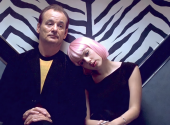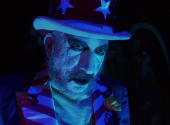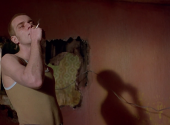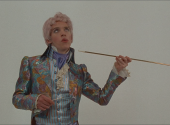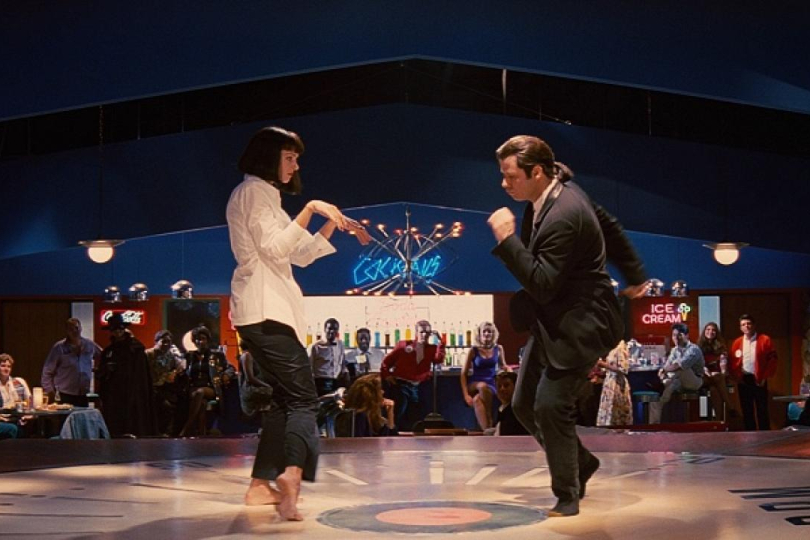
The Soundtracks of Our Lives #5: Pulp Fiction, Music, Action!
Soundtracks have long been recognised as a vital component of filmmaking, often serving to enhance the emotional weight of a scene, establish a character's identity, or even to encapsulate the film's themes. However, there are soundtracks that transcend mere functionalism and actively participate in the storytelling, infiltrating the scenes to create a multi-layered experience that engages audiences both emotionally and intellectually. Of course, we are talking about the immortal masterpiece of the genius Quentin Tarantino, the timeless Pulp Fiction.
When you think of Pulp Fiction, what comes to mind? Maybe it’s John Travolta and Uma Thurman's killer dance moves or Samuel L. Jackson's unforgettable monologues. But let's not forget one of the most important characters in the movie: the soundtrack. The film is a dynamic tapestry of violence, dark humour and memorable dialogue, seamlessly interwoven with a soundtrack that not only enhances the narrative but also immortalises its iconic scenes through music.
Before Pulp Fiction, mainstream film soundtracks often consisted of popular songs meticulously crafted for commercial release, usually with little regard for how they fit into the film's narrative. Tarantino, however, took a different approach. He used music not just to fill spaces but to insert it meaningfully into the storyline. The movie has a music lineup that could make even the most stoic of filmgoers tap their toes and nod their heads.
The film kicks off with the iconic twang of Dick Dale & His Del-Tones' "Misirlou", which sets the stage for a film that's about to serve up a slice of retro coolness with a side of adrenaline. As the camera zooms in on the glowing neon sign of a Los Angeles diner, you just know you're in for a wild ride through the underbelly of the city of angels. This surf rock classic doesn’t just grab your attention; it hooks you right from the start.
As the movie opens with a couple sitting in a diner, the frantic pace of the guitar riff mirrors the excitement and chaos of the moment. It's as if the music is pushing the characters to act, pulling you into their world. This instrumental tune sets the tone for the film's quirky and tension-filled atmosphere as we are introduced to the characters, played by Tim Roth and Amanda Plummer, who are preparing to rob the diner.
Beyond the songs, the soundtrack is interspersed with memorable dialogue snippets that have become iconic. The car scenes, for instance, capture characters exchanging philosophies about life and pop culture. That's the case of the "Royale with Cheese" car scene, where John Travolta's character, Vincent Vega, and Samuel L. Jackson's, Jules Winnfield, cruise down the boulevard to the smooth sounds of Kool & The Gang and their timeless "Jungle Boogie".
It's a laid-back groove that belies the tension bubbling beneath the surface of their banter about fast food in Europe and the art of the pimp handshake. But the dance sequence at Jack Rabbit Slim's to Chuck Berry's "You Never Can Tell" is the one that truly gets the blood pumping. It captures the essence of 1950s Americana: Mia Wallace glides onto the stage in a white bob and black-and-white dress, and she and Travolta show off their moves in a twist that's as mesmerising as unexpected.
It's a moment that's not just about the plot – it's about capturing the essence of rock 'n' roll in a film that's practically a love letter to the genre. But perhaps the most memorable musical moment comes during the climax of the film, as Mia prepares for a night out after a near-fatal overdose. As the chaos unfolds, the soundtrack switches to Urge Overkill's cover of "Girl, You'll Be a Woman Soon", originally by Neil Diamond.
The song evokes feelings of impending disaster and vulnerability, encapsulating the sense of inevitable fate that permeates the movie. As the story unfolds, the soundtrack continues to shine. "Son of a Preacher Man" by Dusty Springfield plays during a poignant moment between Vincent Vega and Mia Wallace. The smooth jazz rhythm wraps around the scene like a comforting blanket, whispering secrets about the actors' past and their desires.
This juxtaposition of cheerful music against a chilling act creates a powerful contrast that sticks with you. Moreover, the upbeat melody makes everything feel wrong, pulling you into a whirlpool of emotions. This is also the case with the Statler Brothers' cheerful country ballad, "Flowers on the Wall", which is hummed by boxer Butch (made iconic by Bruce Willis in top form) as he is driving after double-crossing Marsellus Wallace.
The closing song is the ultimate climax to an already incredible soundtrack. As "Surf Rider" by The Lively Ones blasts through the speakers, it perfectly encapsulates the adrenaline-filled, action-packed thrill ride that is Quentin Tarantino's masterpiece. It's the cherry on top of an already perfect ending scene, perfectly complementing the chaotic yet satisfying conclusion of Jules and Vincent's journey.
With its twangy guitar riffs and driving drumbeats, this instrumental track conveys a sense of urgency and excitement that leaves viewers on the edge of their seats. This song not only elevates the mood of the film but also highlights just how carefully curated every aspect of Pulp Fiction truly is, further solidifying its status as one of the greatest films in cinematic history.
This soundtrack's importance in the history of music is two-fold. Firstly, it revitalised interest in the genre of surf rock and soul tracks, that had been gathering dust for decades. Secondly, it paved the way for a new era of film soundtracks that didn't rely on original scores but rather on the artful curation of pre-existing songs to create a unique sonic landscape for a movie. Pulp Fiction didn't just change the way we watch films; it changed the way we listen to them.
Pulp Fiction is a time capsule of cool, a sonic representation of a film that broke the rules and became an instant classic. The music chosen isn't merely an accessory; it's a vital part of the story. With each song, you’re pulled deeper into the film's atmosphere, feeling every twist and turn along the way. Following Tarantino's work, other filmmakers began to adopt similar strategies, discovering the power of nostalgia intertwined with modernity.
Subsequent films featuring eclectic soundtracks, such as Garden State and The Great Gatsby, owe a debt of gratitude to Tarantino's revolutionary approach. And surely, Sofia Coppola took inspiration from it to make an equally valuable masterpiece for her intimate and irreverent Marie Antoinette, which we will discuss in the next episode.
What makes the Pulp Fiction soundtrack so iconic? Why are there so many diverse genres present? What role does music play in character development? How did Tarantino choose the songs? And how did the Pulp Fiction soundtrack influence pop culture?
Leave your opinion in the comments below!
If you have found an error or typo in the article, please let us know by e-mail info@insounder.org.


